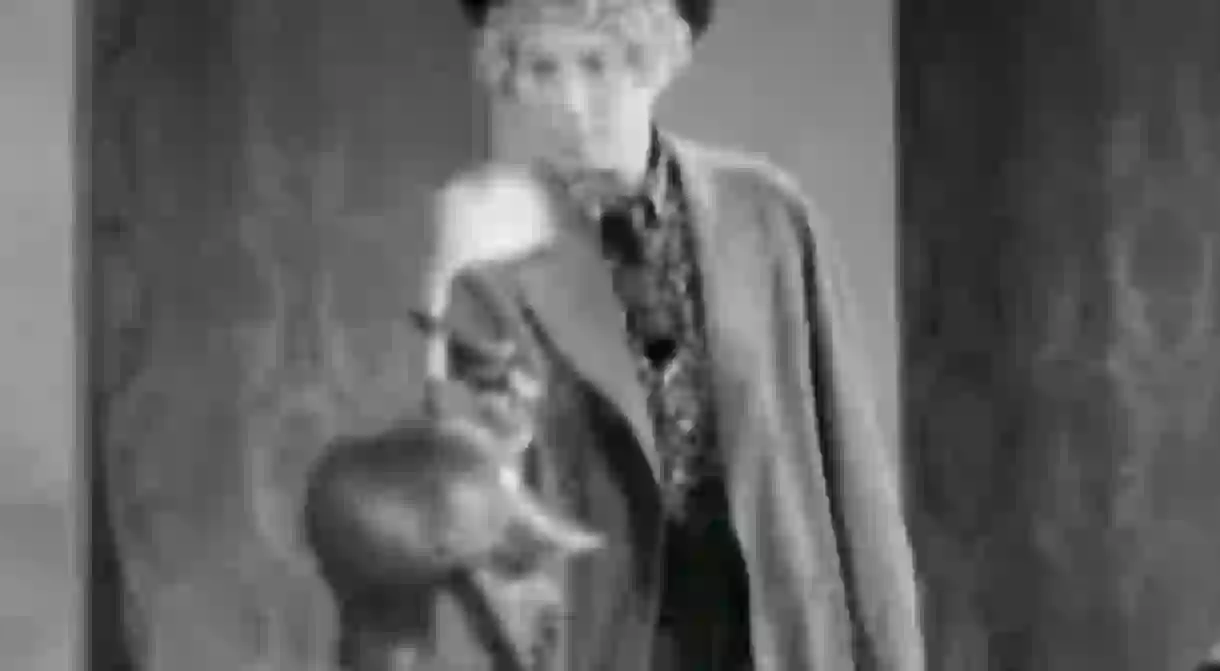Escape the Inauguration With These 1930s Films

For those stuck indoors and prevented from actively protesting the inauguration of President Trump today, the temptation to follow the day’s events on TV or a computer will need to be resisted. Instead, track down and start watching these five movies around 11 am, when inauguration coverage begins. This is less a head-in-the-sand policy than a simple means of maintaining viewer integrity. We chose the 1930s because it was a decade in which things got better after they got worse, hopefully an optimistic sign.
Duck Soup (1933)
In the most anarchic of the Marx Brothers’ comedies, Rufus T. Firefly (Groucho) is appointed leader of the bankrupt country of Freedonia by the rich Mrs. Teasdale (Margaret Dumont)—and leads it into war against neighboring Sylvania after he insults its ambassador. Spies played by Chico and Harp meanwhile arrive to steal Freedonia’s war plans, but end up joining forces with Firefly as all logic goes out the window and a mad Dadaist battles ensues. (Zeppo was also on hand as Firefly’s secretary.) The Marxes were scourges of pompousness, privilege, elitism, and bullying—if only they could be reconstituted and smuggled into Trump’s cabinet!

King Kong (1933)
The white explorers who seek to capture the mythical Kong on Skull Island in the Indian Ocean get more than they bargain for—a colossal ape that, transported to New York, furiously breaks free from its chains and goes on the rampage. It would be a stretch to say that Merian C. Cooper and Ernest B. Schoedsack’s classic, the daddy of all stop-frame animation epics, pre-ordained the ascent of Donald Trump, but those who put him in power may have cause to wonder why they’ve unleashed such a force.

The Awful Truth (1937)
The title sounds like it was minted last November 8—election night. There all similarities to the Trump era end, for Leo McCarey’s screwball comedy is a sophisticated and insouciantly sexy film for adults, perhaps the genre’s best. On the cusp of divorce, warring spouses Cary Grant and Irene Dunne compete to sabotage each other’s plans to marry again, resulting in a madcap series of attacks and counterattacks. Dunne has the edge over Grant most of the time, as when she shows up at his heiress fiancée’s mansion pretending to be his vulgar, tipsy showgirl sister. Grant was born 113 years ago this week—and lives on impeccably.

The Rules of the Game (1939)
Members of the French haute-bourgeoisie and their servants gather at a landed estate for a weekend of shooting and illicit dalliances. Jean Renoir’s masterwork is a sublime farce with an ominous tone. “I had desired to do something like this for a long time, to show a rich, complex society where—to use a historic phrase—we are dancing on a volcano,” the director said. In 1939, the volcano was the coming war, symbolized by Renoir in the hunting party’s wanton slaughter of rabbits. Another war may not be imminent, but the sense of dancing on a volcano is palpable now in different ways.

Stagecoach (1939)
John Ford’s landmark Western takes the form of a social comedy, based on Maupassant’s story Boule de Suif, about class conflicts on a stagecoach heading across Apache country. It holds that the outcasts aboard—John Wayne’s outlaw, Claire Trevor’s prostitute, and Thomas Mitchell’s drunken doctor—are more capable of kindness and decency than their respectable fellow travellers. Flawed, however, is Ford’s wish for his hero and heroine to live away from the settlements (“safe from the blessings of civilization”), because you can only change society from within.














